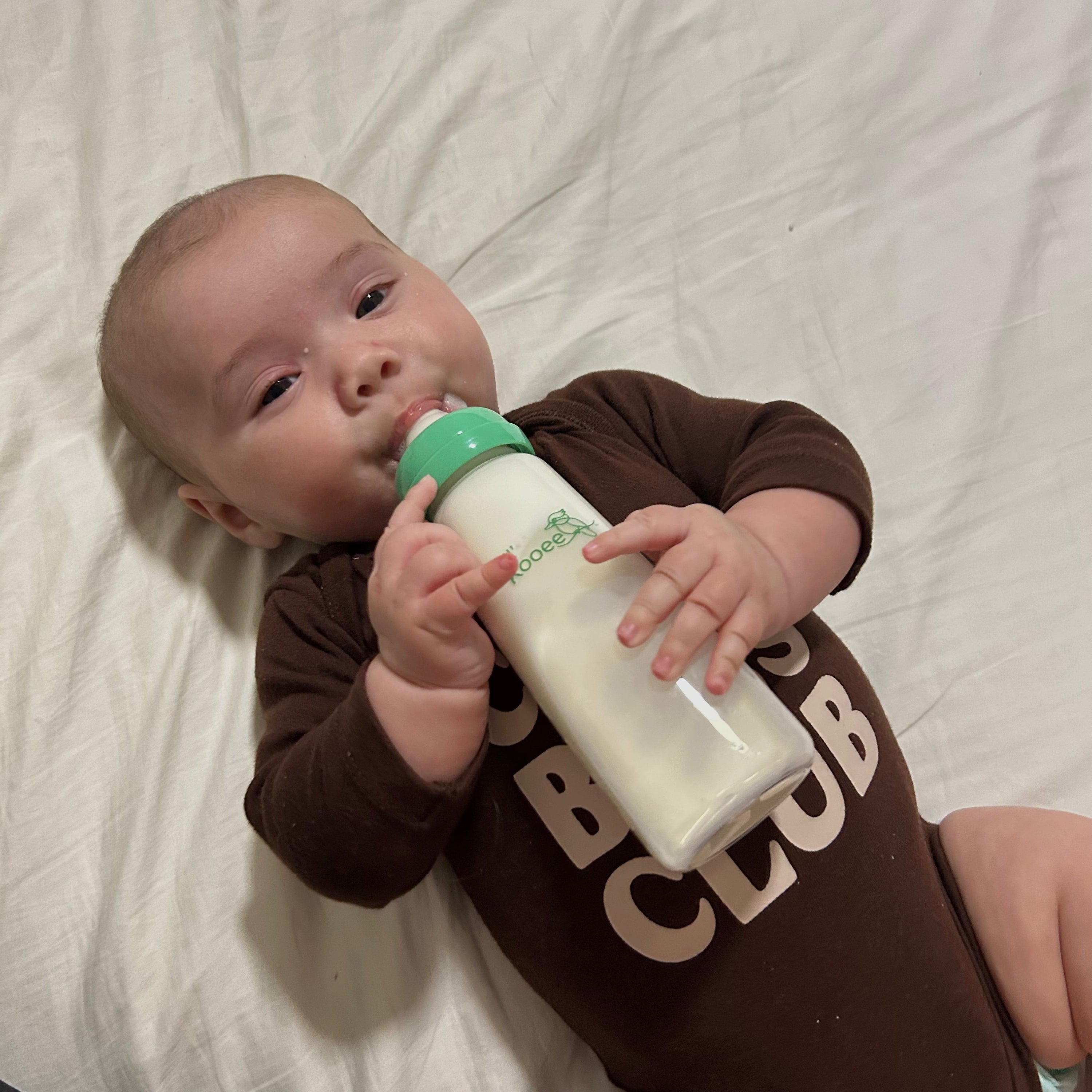
Feeding Without Shame: Why "Fed is Best" Needs to Be the Real Conversation
By Susie Warner
Lil’Kooee Founder, Parent Consultant,
If you’ve ever welcomed a baby into the world, you’ve likely heard the phrase:
“Breast is best.”
It’s a phrase that’s been part of our maternal health language for decades - and yes, there’s truth in it. Breastfeeding offers numerous benefits for both the baby and the mother. However, what is often overlooked in the conversation is that not every parent can breastfeed, and not every parent wants to.
And that’s okay.
As someone who’s worked with families for over 25 years, I’ve seen the joy of parenting - but also the stress, guilt, and pressure that can come from something as fundamental as feeding. That pressure is rarely more intense than in those early days when you’re still finding your footing, learning your baby’s cues, and just trying to survive on four hours of broken sleep.
So, I want to offer a different phrase, one that holds more space for the complexity of real life: Fed is best.
The Missing Side of the Conversation
Feeding your baby - whether at the breast, from a bottle, or a combination of both - should be a nurturing, connecting experience. But instead, many parents feel judged or unsupported, especially if things don’t go according to “the plan.”
Breastfeeding can be beautiful, but also painful, emotionally exhausting, or simply unworkable for some. Bottle-feeding can be practical, empowering, and freeing - but is still too often seen as second best.
Over the years, I’ve worked with so many parents who have been left in tears, not because their baby is hungry, but because they feel they’ve failed at something they were told is natural and automatic. The truth is, every feeding journey is personal, and there’s no one right way to nourish your baby.
The Bottle Evolution - And What We’ve Forgotten
In the wake of the “breast is best” movement, bottle designs changed dramatically. Companies rushed to create bottles and teats that claimed to mimic the breast in shape, feel, and function. And while the intention may have been supportive, the results haven’t always matched the needs of babies - or parents.
What many forget is that for generations, babies were fed successfully using simple, narrow-neck bottles. There’s sound biological reasoning behind that. When a baby feeds from a bottle, there’s no hormonal letdown like in breastfeeding. Instead, babies rely on an instinctive sucking reflex, which is best activated through contact between the palate and tongue - something that’s naturally supported by a narrow-neck teat.
Even today, most maternity hospitals use narrow-neck bottles for newborns. Not because they’re old-fashioned, but because they work, and they’ve always worked.
Feeding Is About More Than Just Nutrition
Feeding isn't just about getting milk into a baby’s tummy. It’s also about supporting development, particularly oral motor development. The way a baby sucks, swallows, and breathes during feeding can influence everything from chewing skills to future speech and language development.
Unfortunately, not all bottle designs support these processes equally. In the effort to replicate breasts, some bottles have become bulky, hard to clean with PP funnels, or even disrupt the natural sucking rhythm babies rely on.
Sometimes, simpler really is better.
The truth is: a well-fed, loved baby is a thriving baby. And a confident, supported parent is far more important than how milk is delivered.
We need to stop asking, “Are you breastfeeding?” and start asking, “How’s feeding going for you?”
We need to stop equating formula with failure.
We need to stop promoting one method over another as a moral high ground.
Instead, we can acknowledge the nuances, the hard days, the wins, the bottle feeds at 2am, the pumping sessions between meetings, the tears, the triumphs—and most of all, the love that goes into every feed.
What I Tell Every Parent I Work With
You are not failing if breastfeeding didn’t work out.
You are not failing if you choose to pump.
You are not failing if you use formula from day one.
You are not failing if you mix feed.
You are not failing.
You are parenting.
And that’s the most important job in the world.
Share


